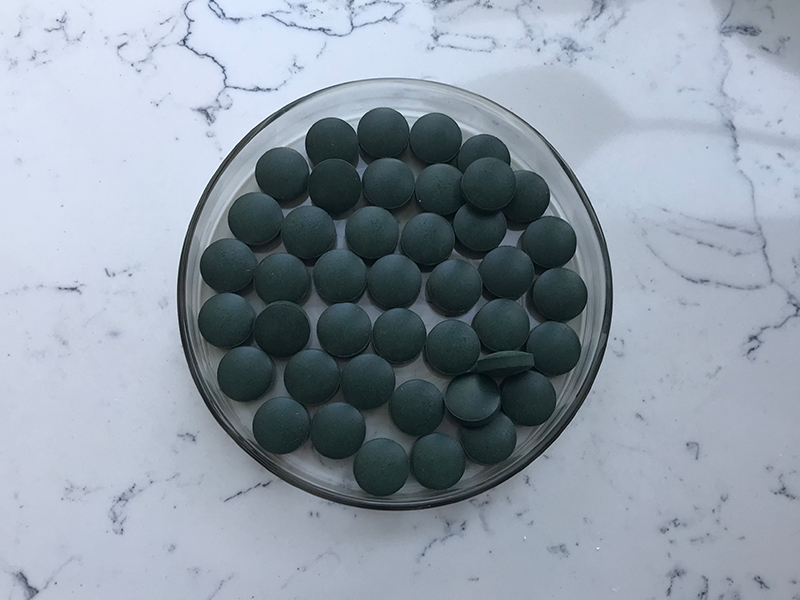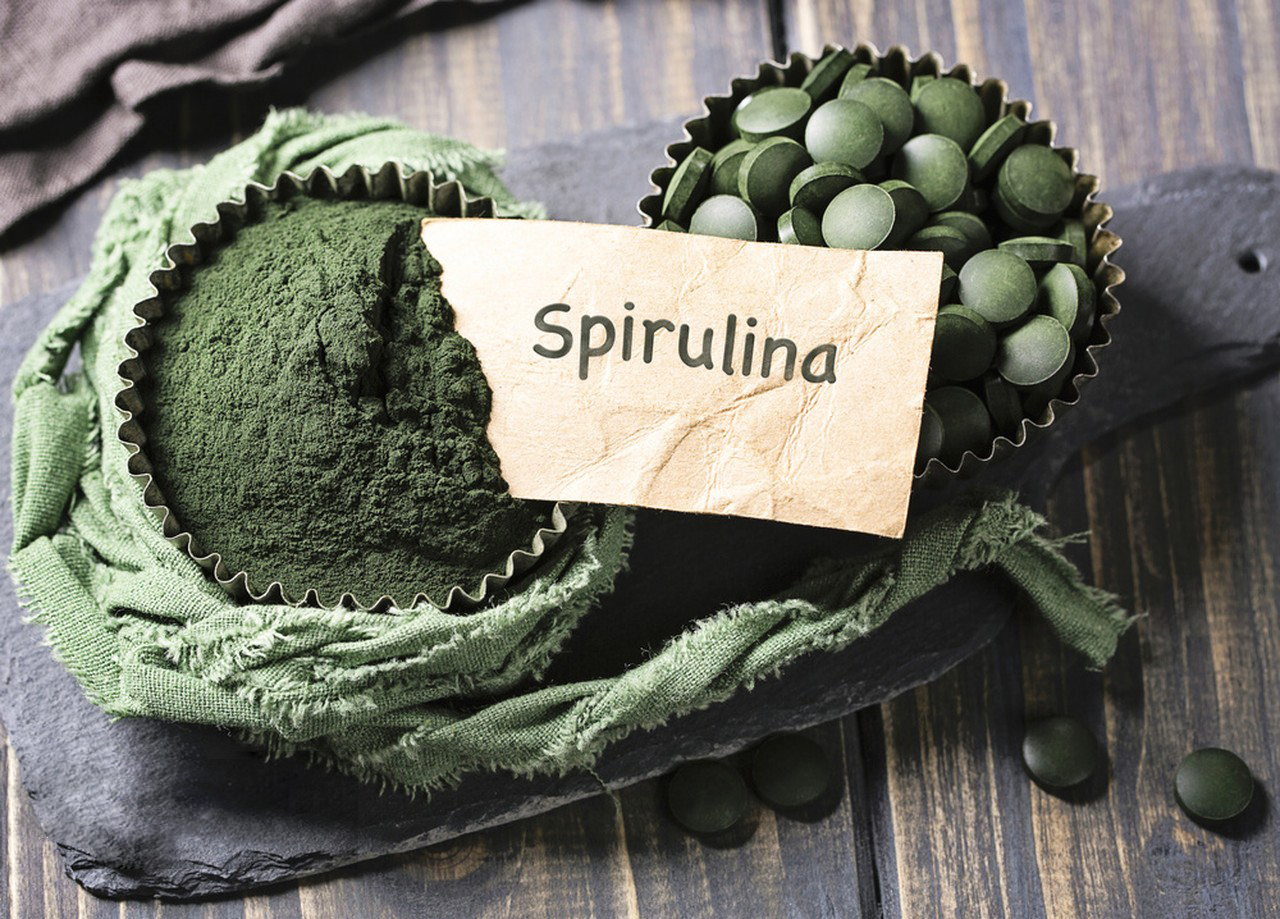Spirulina tablets are a popular dietary supplement known for their high nutritional value, particularly as a source of protein, vitamins, and minerals. Here’s how you can use spirulina tablets for best results:
Follow Recommended Dosage: Spirulina tablets usually come with recommended dosage instructions on the packaging. Follow these instructions carefully. Typically, a common dosage is around 3 to 6 tablets per day, but this can vary depending on factors like age, weight, and individual health goals.
Take with Water: Swallow the spirulina tablets with a glass of water. This helps the tablets to dissolve and be absorbed more effectively by your body.
Take with Meals: While it’s generally safe to take spirulina tablets on an empty stomach, some people may experience slight gastrointestinal discomfort. Taking them with meals can help minimize any potential discomfort.
Stay Consistent: For best results, take spirulina tablets consistently as part of your daily routine. This will help maintain a steady intake of nutrients and maximize the potential benefits.
Combine with Balanced Diet: Spirulina tablets can complement a balanced diet but should not be relied upon as the sole source of nutrition. Incorporate them into a healthy, well-rounded diet rich in fruits, vegetables, whole grains, and lean proteins.

Stay Hydrated: Spirulina has a detoxifying effect on the body, so it’s essential to drink plenty of water throughout the day to help flush out toxins and support overall health.
Consult a Healthcare Professional: If you have any underlying health conditions or are pregnant or breastfeeding, it’s essential to consult with a healthcare professional before adding spirulina tablets to your regimen.
Monitor for Side Effects: While spirulina is generally safe for most people, some individuals may experience minor side effects such as upset stomach, headaches, or allergic reactions. If you experience any adverse effects, discontinue use and consult a healthcare provider.
Store Properly: To maintain the potency of spirulina tablets, store them in a cool, dry place away from direct sunlight.
Be Patient: While some people may experience immediate benefits from taking spirulina tablets, others may notice results over time. Be patient and consistent with your usage to reap the full benefits.
By following these guidelines, you can maximize the effectiveness of spirulina tablets and incorporate them into your daily routine for improved health and well-being.
The potential benefits of Spirulina Tablets
Spirulina tablets are derived from spirulina, a type of blue-green algae that grows in both fresh and saltwater. Spirulina is considered a superfood due to its dense nutrient profile and potential health benefits. Here are some of the potential benefits of Spirulina tablets:
Rich in Nutrients: Spirulina is packed with various nutrients, including protein, vitamins (such as B vitamins and vitamin K), minerals (such as iron, magnesium, and potassium), essential fatty acids, and antioxidants like beta-carotene and phycocyanin.
Boosts Immune System: Spirulina contains compounds like phycocyanin, which have antioxidant and anti-inflammatory properties. These compounds may help enhance the immune system, reducing the risk of infections and promoting overall health.
Supports Heart Health: Some studies suggest that spirulina may help lower LDL cholesterol and triglyceride levels while increasing HDL cholesterol, which can contribute to a healthier heart and reduced risk of cardiovascular diseases.

May Aid in Blood Sugar Control: Spirulina has been shown to improve insulin sensitivity and may help regulate blood sugar levels, which could be beneficial for people with diabetes or those at risk of developing the condition.
Supports Detoxification: Spirulina contains chlorophyll, a natural detoxifying agent that may help remove heavy metals and toxins from the body, supporting overall detoxification processes.
Provides Energy and Stamina: Spirulina is rich in iron, which is essential for transporting oxygen throughout the body. Consuming spirulina tablets may help combat fatigue and increase energy levels, promoting better endurance and stamina.
May Aid Weight Loss: Spirulina is low in calories but high in nutrients, making it a suitable addition to a weight loss diet. Some research suggests that spirulina may help reduce appetite and promote feelings of fullness, potentially aiding in weight management.
Supports Muscle Recovery: The high protein content of spirulina makes it beneficial for muscle repair and recovery after exercise. Athletes and fitness enthusiasts may use spirulina tablets as a natural supplement to support their training regimes.
Promotes Skin Health: Spirulina’s antioxidant properties may help combat oxidative stress and protect the skin from damage caused by free radicals. Some people also use spirulina topically as a face mask to improve skin tone and texture.
May Improve Allergic Rhinitis Symptoms: Some studies suggest that spirulina supplementation may help alleviate symptoms of allergic rhinitis, such as nasal congestion, sneezing, and itching, due to its anti-inflammatory effects.
While spirulina tablets offer many potential health benefits, it’s essential to consult with a healthcare professional before adding them to your routine, especially if you have any underlying health conditions or are taking medications. Additionally, quality and dosage are crucial factors to consider when choosing spirulina supplements to ensure safety and effectiveness.
